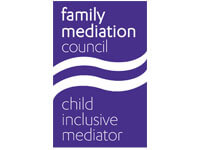
Expert
Guidance

A Little About Us
Get To Know Us Before You Arrive
Mediation is a special way of resolving conflicts that aims to bring people together to find solutions. In this process, a neutral third person, known as a mediator, helps those in disagreement to talk openly and work towards agreement. This approach is great for families because it focuses on understanding each other and finding solutions that fit everyone involved. It keeps things private and avoids the stress of a court battle.
Our family mediation services are here to guide you through this process in a caring and efficient way. We understand that family matters are unique, and our approach is designed to be flexible and collaborative. By choosing our services, you’re opting for a solution that prioritizes your needs, saves you time and money, and promotes understanding among family members. Let us help you find common ground and build a resolution that works for everyone involved.
Make a Reservation Now!
The Process
How Mediation Works
Family mediation involves a neutral mediator facilitating communication and negotiation between their clients to resolve conflicts. It begins with individual assessments, progresses to joint sessions to identify issues, and generates options for resolution. Through negotiation guided by the mediator, parties reach mutually acceptable agreements. Agreements are documented and implemented, with the possibility of follow-up.
This process fosters cooperation and empowers separated families to find solutions tailored to their needs, promoting constructive conflict resolution. At the end of the process, and providing our service is successful, the mediator will draft an outcome document which can be formalised or made into a Legally Binding document.
The Process
All mediation begins with one to one meetings between the mediator and individual clients, known as MIAMS. This gives the client the chance to help the mediator understand their views, thoughts and goals, whilst giving the mediator the opportunity to ensure that mediation would be suitable and to explain how it works. Mediator and client then jointly decide how to proceed.
The Standard Model
Clients and mediator have a series of meetings scheduled for 1.5 hours to try and identify options and agree solutions. More of each meeting is conducted with mediator and all clients on screen (or in person) together than not.
Third parties, such as lawyers or advisors, are very rarely included in the actual meetings.
The mediator facilitates the meeting on a completely open basis.
Shuttle mediation
This is conducted in the same way as the standard model, except that the clients only ever see, hear and speak to the mediator.
This can be helpful when one or both clients cannot deal directly with the other person.
Hybrid Mediation
In this model, meetings are scheduled for longer and can include a mix of joint and shuttle sessions. The clients can specify what information they would like the mediator to pass to the other client (within certain restrictions that will be explained at the start of the process).
This model can be used when clients would like third parties, such as lawyers / advisors, to be involved in the actual mediation process.





25+ Years Of Sucessful Stories
Our Mediators are waiting to help, why are you?
FMSE London Mediation
Our Mediation Services
Mediation provides you with the opportunity to work through the important issues in your life without going to court. In many cases Family Mediation can offer a better and less destructive resolution. We can help you with:

Parenting when Separated
Parenting after separation entails creating custody schedules, resolving visitation issues, and fostering effective co-parenting communication strategies.

Separating when Married / Civil Partnership
Family mediation during separation in marriage or civil partnership involves dividing assets, resolving financial matters, and establishing custody arrangements amicably.

Separating when Cohabiting
In family mediation for cohabiting partners, separating entails resolving property disputes, financial matters, and potential custody arrangements with mutual agreement.

Financial & Non-child Related Disputes
In family mediation, financial disputes may include asset division, alimony, or property settlements, while non-child issues involve relational conflicts or inheritances.
And of course, we are always on hand if you need a bit of guidance
Mediators do not give legal advice, but we can give you information. The process will help you identify and assess the things you could do, as well as the pros and cons of those things. However, if you or the mediator feel that you would benefit from independent legal advice, that can happen during the process. Mediation and legal advice are not mutually exclusive and you can never be too informed.
Why Mediate
Avoid the expensive and emotionally destructive traditional court and legal system by choosing to mediate
There is nothing to lose when you choose mediation over legal processes, it’s cost-effective, time-efficient, and preserves relationships. It provides flexibility, control, and confidential resolutions, reducing stress and ensuring higher compliance. Mediation fosters collaboration, tailoring unique solutions to disputes, making it a preferred alternative for amicable outcomes compared to traditional legal proceedings.

Kind Words…

Why Choose FMSE London
Why is FMSE London the right choice for you

Child Focused Mediation

Online Zoom and
In-Person Sessions

Your Needs
and Wants
Get In Touch
Speak To A Family Mediator Today




